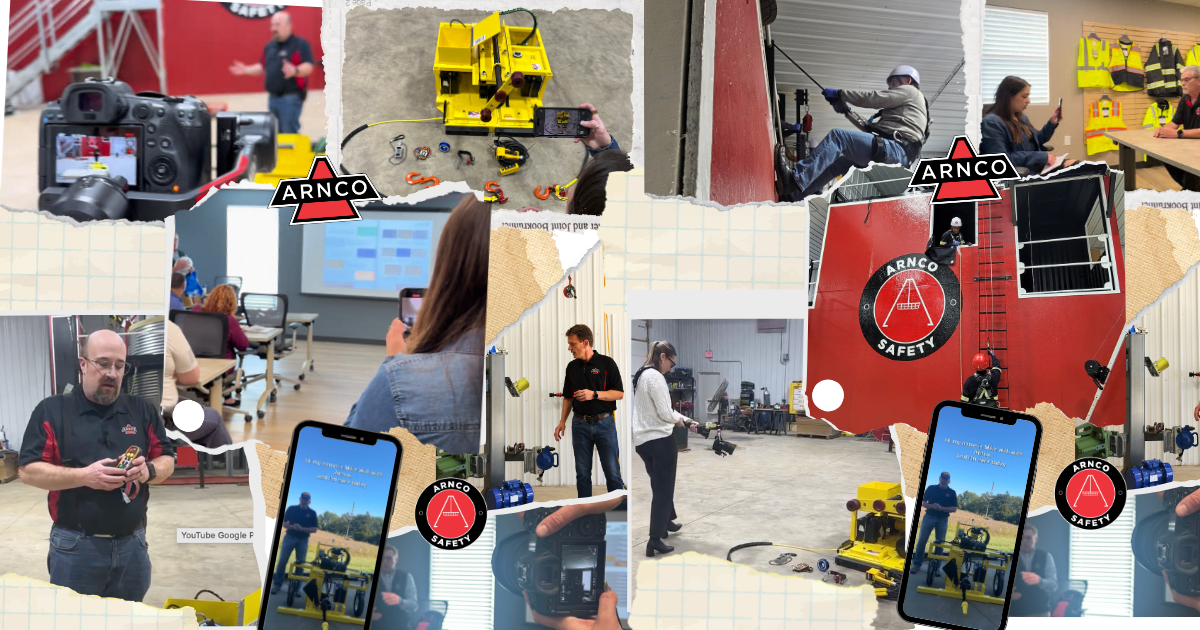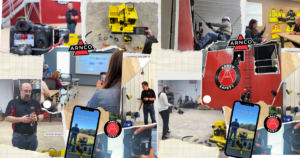AI is here to stay, and brands must adapt or die. If you want proof, look no further than Mondelez International, which is rolling out a “Transformation Office.” Among other things, this group will prioritize the implementation of artificial intelligence across their US business.
And if companies like Mondelez are making AI a priority, it’s a safe bet you should as well. But how exactly can AI help (or hinder) your business?
To explore that question, I wanted to look at the impact of AI, through the lens of AI. In the section below, I copied & pasted ChatGPT’s unedited response to the prompt, “write a blog about the impact of AI on retail for CPG brands.”
Now normally I would never do this, but given the context, I thought it was interesting to hear what AI had to say about itself, unfiltered. I also wanted to provide some perspective by showcasing a real-world example / application of AI (in this case, to write blog content).
So, without further ado, here’s AI’s thoughts on AI’s impact on CPG retail:
6 Ways AI Can Impact Retail for CPG Brands
1. Personalized Consumer Engagement
One of the most significant advantages of AI in retail is its ability to personalize consumer engagement. AI algorithms analyze vast amounts of data, including purchase history, browsing behavior, and social media activity, to create detailed consumer profiles. This enables CPG brands to deliver highly personalized content and advertisements, increasing the relevance and effectiveness of their marketing efforts.
For instance, AI can help identify the best times to engage with consumers and the types of content that resonate most, leading to more meaningful interactions and higher conversion rates. Personalized recommendations not only enhance the shopping experience but also foster brand loyalty and customer satisfaction.
2. Optimized Ad Spend
AI-driven tools empower CPG brands to optimize their advertising spend by ensuring that their ads are shown to the right audience at the right time. Machine learning algorithms analyze past campaign performance and real-time data to predict which strategies will yield the best results. This leads to more efficient allocation of advertising budgets, reducing wasted spend on ineffective campaigns and maximizing return on investment (ROI).
Programmatic advertising, powered by AI, automates the ad buying process, allowing for real-time bidding and placement. This automation enhances the precision and speed of ad campaigns, ensuring that brands reach their target audience more effectively.
3. Enhanced Data Analytics
AI enhances the ability of CPG brands to make sense of the vast amounts of data generated in retail environments. Advanced analytics tools powered by AI can identify trends, patterns, and insights that may not be apparent through traditional analysis methods. These insights enable brands to make more informed decisions about product development, pricing strategies, and inventory management.
Predictive analytics, a subset of AI, allows CPG brands to forecast consumer demand more accurately. This helps in optimizing supply chain operations, reducing stockouts, and minimizing excess inventory. By aligning production and distribution with anticipated demand, brands can enhance their operational efficiency and reduce costs.
4. Improved Customer Service
AI-driven chatbots and virtual assistants are transforming customer service in the retail sector. These intelligent agents can handle a wide range of customer inquiries, from product information to order tracking, providing instant and accurate responses. This not only improves the customer experience but also frees up human agents to focus on more complex issues.
Natural language processing (NLP) enables chatbots to understand and respond to customer queries in a conversational manner, enhancing the overall interaction quality. As AI technology continues to evolve, these virtual assistants are becoming more sophisticated, capable of handling increasingly complex tasks and providing a seamless customer service experience.
5. Innovative Retail Experiences
AI is also driving innovation in retail experiences, creating new opportunities for CPG brands to engage with consumers. Augmented reality (AR) and virtual reality (VR) technologies, powered by AI, are being used to create immersive shopping experiences. For example, AR applications can allow consumers to visualize how a product will look in their home before making a purchase, enhancing the decision-making process.
In-store AI applications, such as smart shelves and automated checkout systems, streamline the shopping experience, making it more convenient for consumers. These innovations not only improve customer satisfaction but also provide valuable data that brands can use to further refine their strategies.
6. Ethical Considerations and Challenges
While the impact of AI on retail is overwhelmingly positive, it also raises important ethical considerations and challenges. Issues related to data privacy, algorithmic bias, and transparency need to be addressed to ensure that AI technologies are used responsibly. CPG brands must be vigilant in protecting consumer data and ensuring that their AI systems are fair and unbiased.
Moreover, the rapid pace of AI development necessitates continuous learning and adaptation. Brands must invest in upskilling their workforce and staying abreast of the latest AI advancements to remain competitive in the ever-evolving retail landscape.
The Human Perspective on Artificial Intelligence
There’s a famous scene in the movie Good Will Hunting, when Robbin Williams and Matt Damon are sitting on a park bench together. William’s monologue opens with him saying,
“So, if I asked you about art, you’d probably give me the skinny on every art book ever written. Michelangelo? You know a lot about him. Life’s work, political aspirations, him and the pope, sexual orientation, the whole works, right? But I bet you can’t tell me what it smells like in the Sistine Chapel. You’ve never actually stood there and looked up at that beautiful ceiling. Seen that.”
I think this scene is a great metaphor for artificial intelligence. Like Damon’s character, AI appears to be incredibly smart, but under the surface it lacks the perspective that can only come from human experience.
The ChatGPT response I posted above is an example of this. While it’s helpful information, it’s also just surface level thinking. It’s bland, lacks meaningful perspective, and generally feels inauthentic.
Side note: Authenticity is critical for brands today. Partly due to the rise of AI (and the fact that there’s so much noise out there), people’s BS meters are on high alert. Brand equity only comes from authenticity.
From creative development to data & analysis, AI can be a powerful tool to help grow your business. But it’s important to keep in mind that AI is still just a tool – it’s only as good as the people using it. Successful implementation will ultimately require people to execute and optimize AI strategies across your business.













